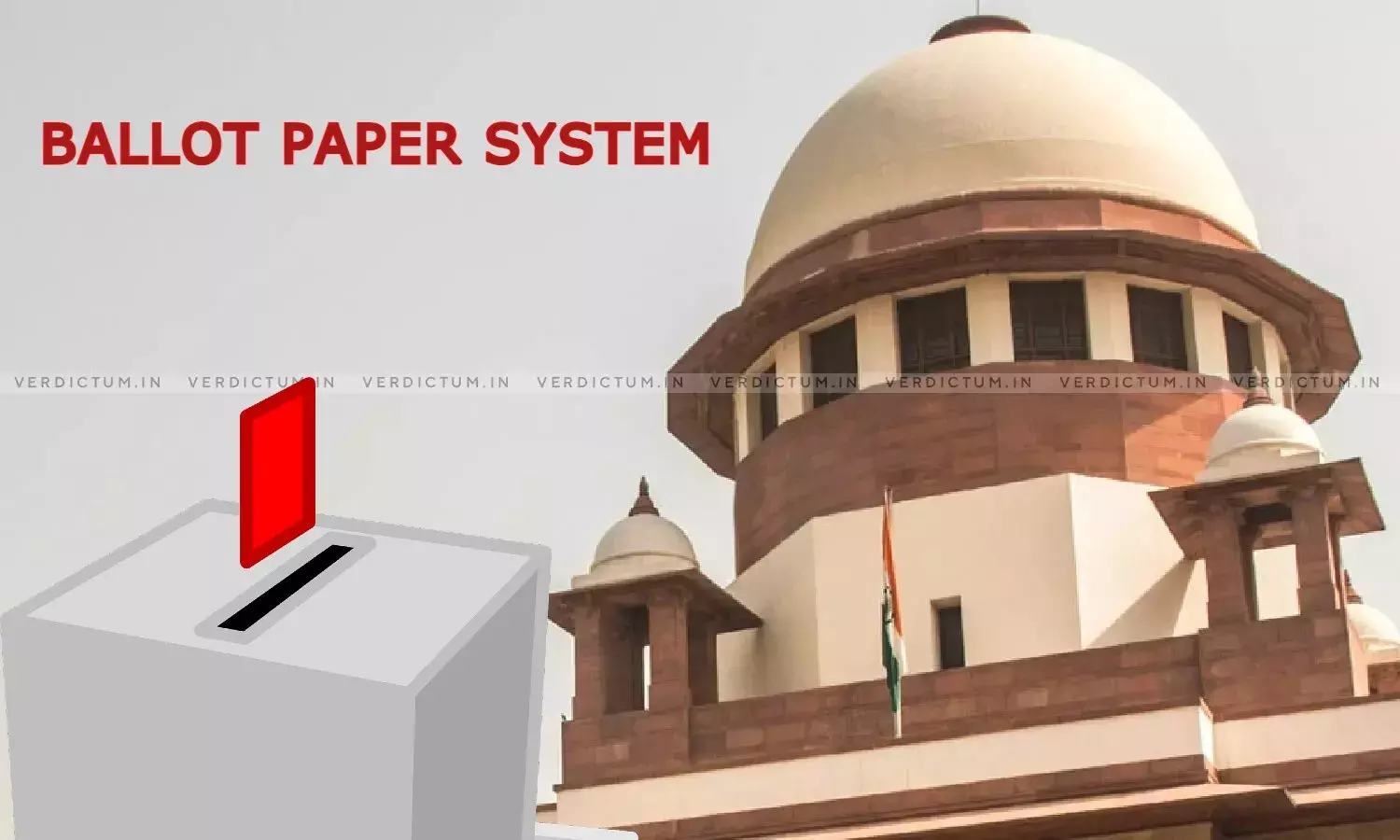Weakness Of Paper Ballot System Is Well Known, We Would Be Undoing Electoral Reforms By Directing Its Reintroduction: Supreme Court
In its Judgment pronounced today in the writ petitions filed by the Association For Democratic Reforms and others, the Apex Court has rejected the paper ballot system and has held that paper ballot is weak and does not provide administrative convenience. The Court has also held in its Judgment that Electronic Voting Machines (EVM) are simple, secure and user-friendly.
The Bench of Justice Sanjiv Khanna and Justice Dipankar Datta held, “We must reject as foible and unsound the submission to return to the ballot paper system. The weakness of the ballot paper system is well-known and documented. In the Indian context, keeping in view the vast size of the Indian electorate of nearly 97 crore, the number of candidates who contest the elections, the number of polling booths where voting is held, and the problems faced with ballot papers, we would be undoing the electoral reforms by directing reintroduction of the ballot papers. EVMs offer significant advantages. They have effectively eliminated booth capturing by restricting the rate of vote casting to 4 votes per minute, thereby prolonging the time needed and thus check insertion of bogus votes. EVMs have eliminated invalid votes, which were a major issue with paper ballots and had often sparked disputes during the counting process. Furthermore, EVMs reduce paper usage and alleviate logistical challenges. Finally, they provide administrative convenience by expediting the counting process and minimizing errors.”
The Petitioners sought to return to the paper ballot system, sought printed slips from the Voter Verifiable Paper Audit Trail machine be given to the voter to verify and put in the ballot box for counting and also sought 100% counting of the VVPAT Slips in addition to the electronic counting by the Control Unit.
While highlighting the history of the paper ballot system, the Court said, “Paper ballots were the norm, till EVMs were projected as a viable alternative in the 1980s. EVMs were first used in an assembly bye-election in Kerala in 1982. All through the 1980s and early 1990s, the use of EVMs for elections was discussed and debated by politicians and experts in the domain of technology and electoral process, and after due deliberations and review, the EVMs were accepted and embraced. In view of the legal challenge regarding the use of EVMs without legislative approval, the Parliament vide Act 1 of 1989 amended the Representation of the People Act, 19518 allowing the use of EVMs. They were used in the General Elections in 2004 and have been used in each and every General and other election thereafter.”
The Bench also referred to its earlier decision in Nyaya Bhoomi and Another v. Election Commission of India (2018) in which a writ petition seeking a return to the ballot paper system instead of EVMs was rejected.
Further, the Court, while highlighting the advantages of the EVMs, said that voting is done by pressing a button thereby negating a scenario of an invalid vote akin to an invalid paper ballot.
Justice Dipankar Datta, while concurring with the opinion of Justice Khanna, has observed that “I have no hesitation to accept the submission of senior counsel for the ECI that reverting to the “paper ballot system” of the bygone era, as suggested, reveals the real intention of the petitioning association to discredit the system of voting through the EVMs and thereby derail the electoral process that is underway, by creating unnecessary doubts in the minds of the electorate…Question of reverting to the “paper ballot system”, on facts and in the circumstances, does not and cannot arise. It is only improvements in the EVMs or even a better system that people would look forward to in the ensuing years.”
He also discussed the technological advancements with EVMs and how reverting to the paper ballot system will further burden the Election Commission of India. He said, “Regressive measures to revert to paper ballots or any alternative to the EVMs that does not adequately safeguard the interests of Indian citizens have to be eschewed.”












